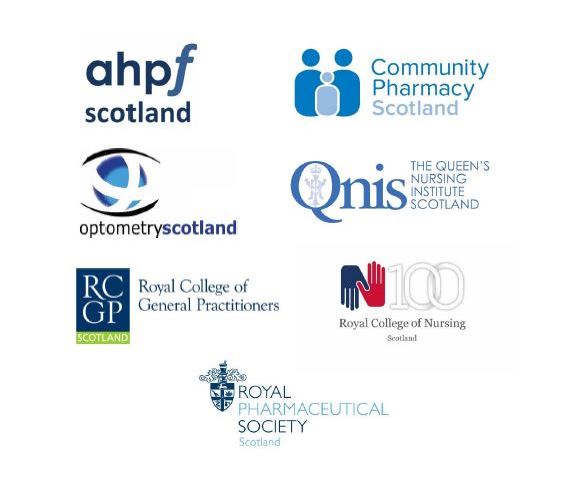A collaborative consisting of seven representative bodies involved in delivering primary care in Scotland has launched its views on the future and principles of primary care in Scotland.
‘The future of primary care in Scotland: a view from the professions’ is an initiative launched by Royal College of General Practitioners (RCGP) Scotland, Royal Pharmaceutical Society Scotland (RPS), Royal College of Nursing (RCN) Scotland, Queen’s Nursing Institute Scotland (QNIS), Community Pharmacy Scotland (CPS), Allied Health Professions Federation (AHPF) and Optometry Scotland. to demonstrate the bodies’ shared understanding of the role of primary care and an agreed set of principles that they believe should underpin the future of services, wherever they are delivered and whoever they are delivered by.
‘As professional organisations,’ says the paper, ‘representing primary health care staff, we see from the frontline that the need for a new approach is urgent. There is no shortage of effort to improve primary care in Scotland. The integration of health and social care should revolutionise how services are joined up to improve outcomes for people.
‘The National Review of Primary Care Out of Hours Services proposes a new approach to delivering urgent care through multidisciplinary teams. The 2020 Vision still drives us to provide more care at home or in a homely setting. and this has been re-emphasised in A National Clinical Strategy for Scotland which, quite rightly, embeds primary care at the heart of reform. The Chief Medical Officer’s work on Realistic Medicine aspires to change primary care practice. A new GP contract is imminent. And many of our professions are in the midst of reviews to re-shape our respective workforces for the 21st century.
‘But when there are so many routes to improvement and sustainability, it is ever more important to ensure that we are all signed up to the same understanding of what we are trying to achieve. Without this, we risk fragmentation, misunderstanding and conflict. So, as professional organisations representing clinical staff, we have come together to agree what we mean by ‘primary care’ and to set out shared principles which we believe should underpin the future for people in Scottish communities who need the support and expertise of generalist clinical staff.’
Alex MacKinnon, Director of Royal Pharmaceutical Society in Scotland, believes the initiative was extremely worthwhile.
‘On behalf of the Royal Pharmaceutical Society in Scotland,’ he said, ‘it was really pleasing to have participated in this worthy initiative led by the RCN in Scotland. It was great to see the way the various primary care health organisations came together to discuss and indeed agree a common understanding of ‘primary care’ and the development of a set of principles that everyone could commit and sign up to.’


